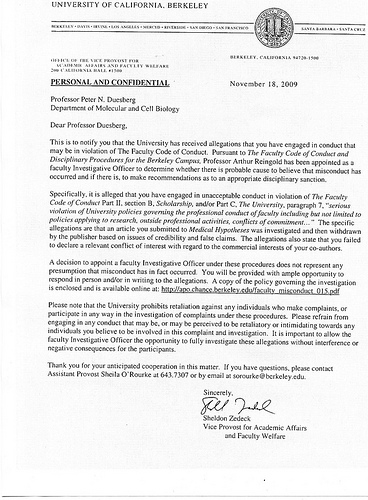In November, UC Berkeley launched an investigation of Professor Peter Duesberg for misconduct associated with a paper of his retracted from Medical Hypotheses. According to the letter sent Duesberg informing him of the investigation, there were two allegations. One was that his paper had been withdrawn by the publisher due to “issues of credibility and false claims.” The other was that “you failed to declare a relevant conflict of interest with regard to the commercial interests of your co-authors.” Duesberg tried to learn more about what he was accused of, without success. Finally the university sent him the letters of complaint that led to the investigation. Here they are.
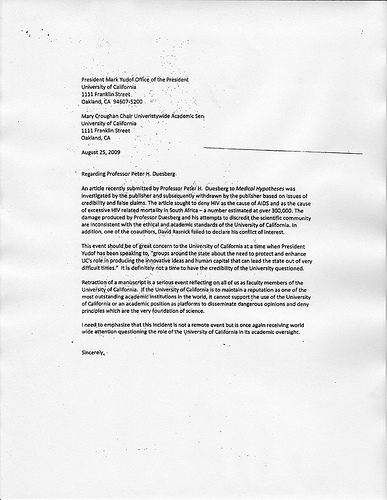
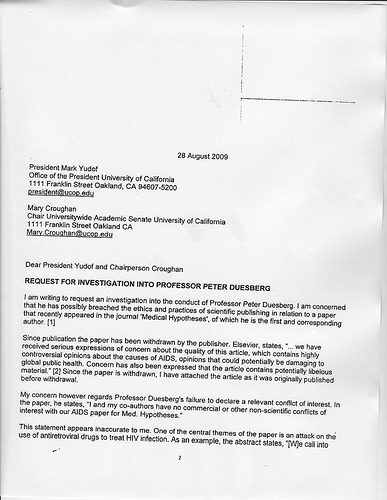
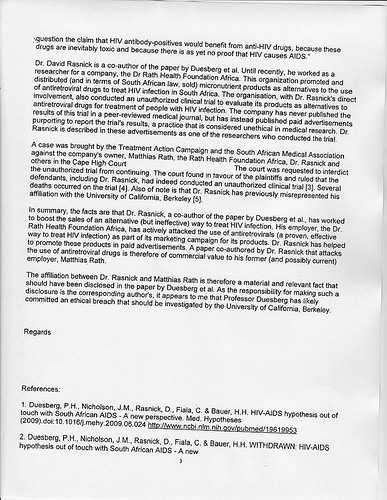
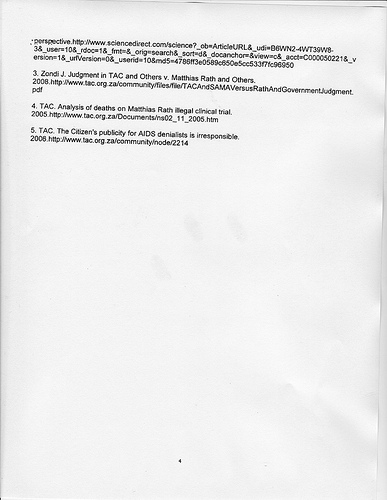
The first letter is incredibly vague. The “issues of credibility and false claims” aren’t spelled out and it is unclear why the University of California should care that “Bruce Rasnick failed to declare his conflict of interest.” The idea that publishing a dissenting paper about AIDS is an “attempt to discredit the academic community” is worthy of Orwell.
The second letter has several strange features. First, it contradicts itself. It says:
[Statement 1] Until recently, he [Rasnick] worked as a researcher for a company, the Dr Rath Health Foundation Canada [owned by Mattias Rath] [Statement 2] [Rasnick’s] former (and possibly current) employer, Mattias Rath.
Statement 1 says Rasnick no longer works for Rath. Statement 2 says he might still work for Rath.
Second, its logic is outside the way conflict of interest is normally understood. Because you used to work for someone that might benefit from your paper, you now have a conflict of interest? This makes no sense.
Finally, there is the weird idea that because something is “possible” — Mattias Rath is “possibly” Rasnick’s current employer — it deserves a misconduct investigation. It’s possible that a flying saucer will land on the White House lawn tomorrow.
In spite of all this, UC Berkeley administrators allowed themselves to be used to punish dissent.
